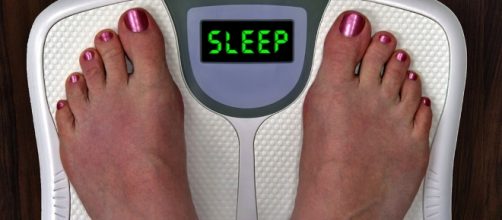There has been extensive research dealing with how sleep helps lose weight. Research reveals that people who get a healthy amount of sleep will find it easier to lose weight. A 7 to 9-hour sleep period is considered healthy.
How sleep helps
According to Women's Health magazine, sleeping helps the body burn calories as it consumes energy by repairing and preparing itself for the next day. Sleeping at night also prevents people from eating late night snacks. People who get enough sleep burns 20 percent more calories compared to those that are sleep deprived.
More than 30 percent of people are sleep deprived, according to the Centers for Disease Control and Prevention. A study from the University of Columbia found that sleep deprived people make unhealthier choices when it comes to food, craving sugar, and carbohydrates.
Sleep deprivation causes metabolic grogginess, a term coined by the University of Chicago when they conducted a study to find a correlation between sleep and weight loss. According to an article published in the Annals of Internal Medicine by the University of Chicago, within 4 days of insufficient sleep, the body reduces its ability to use insulin, making the body less responsive to insulin, and unable to process fats, leaving them stored in the body.
Endocrine Web defines insulin as the hormone that allows the body to use sugar from the food we eat as energy. With a healthy amount of sleep, insulin can function properly, removing fatty acids and lipids from the body stream.
An extreme diet
In 2012, Dr. Michael Breus introduced The Sleeping Beauty diet in his book, “The Sleep Doctor’s Diet Plan: Lose Weight Through Better Sleep.” The diet suggests that people sleep for 7 to 9 hours and eat healthy foods. People should also avoid caffeine and alcohol, and should not exercise up to four hours before going to sleep.
Recently, some Pro-Anorexia communities have been abusing the diet. They have taken the diet to the extreme by sleeping for 18 to 20 hours to avoid meal times.
The diet makes use of sedatives in order to sleep longer. Following the extreme version of the diet also seems odd -- if a person sleeps for 18 or 20 hours per day, they will only have 4 hours in a day for other activities.
Linia Patel, a dietician and the spokesperson of the British Dietician Association, has warned people that taking the diet to this extreme is very dangerous and may lead to death. She also explains that being dependent on sedatives may get people addicted to it, and possibly leave them asleep permanently. Patel insists that if a person is interested in losing weight, they should consult an expert in order to find a healthy and safe diet.


